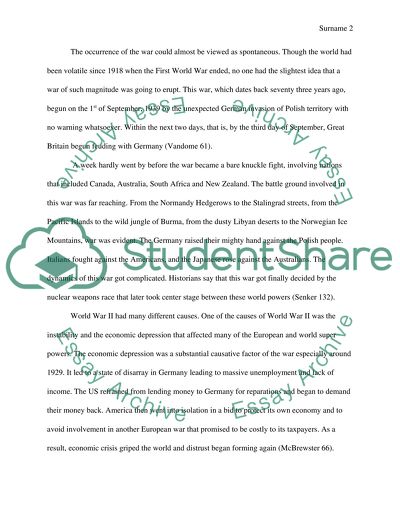Cite this document
(“The causes and effects of World War II Term Paper”, n.d.)
Retrieved from https://studentshare.org/history/1398888-world-war
Retrieved from https://studentshare.org/history/1398888-world-war
(The Causes and Effects of World War II Term Paper)
https://studentshare.org/history/1398888-world-war.
https://studentshare.org/history/1398888-world-war.
“The Causes and Effects of World War II Term Paper”, n.d. https://studentshare.org/history/1398888-world-war.


